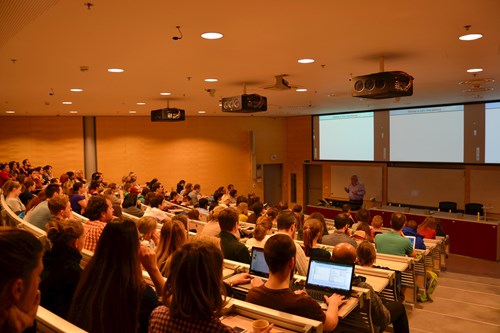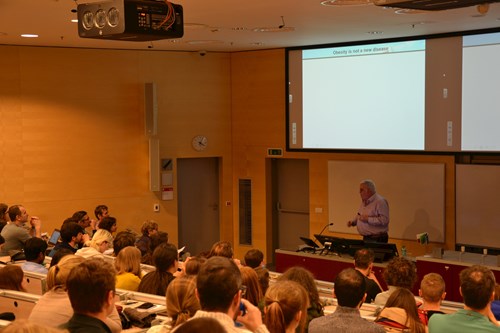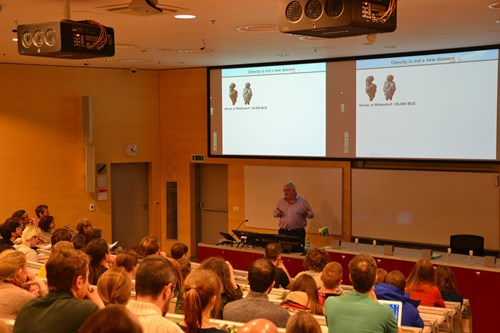Prof. Stephen O´Rahilly
University of Cambridge, UK
-
He is interested in the aetiology and pathophysiology of human metabolic and endocrine disease and how such information might be used to improve in the diagnosis, therapy and prevention of these diseases.
-
One major area of continuing interest is to better understand why some people are very susceptible to obesity and others seem resistant. We can learn quite a bit about this from human genetics but those discoveries need to be better integrated with growing fundamental knowledge regarding processes controlling energy intake and expenditure.
-
He is also very interested in why people, particularly those who become obese, become resistant to the glucose lowering effects of the hormone insulin. Again the integration of human genetics with basic studies in cells and disease models will be necessary to advance our understanding.
-
He co-direct the Wellcome Trust-MRC Institute of Metabolic Science (IMS) with my colleague Professor Nick Wareham. Within the IMS, I direct the MRC Metabolic Diseases Unit. I am also Head of the University Department of Clinical Biochemistry. On the wider Cambridge Biomedical Campus, I am Scientific Director of the NIHR Biomedical Research Centre.


